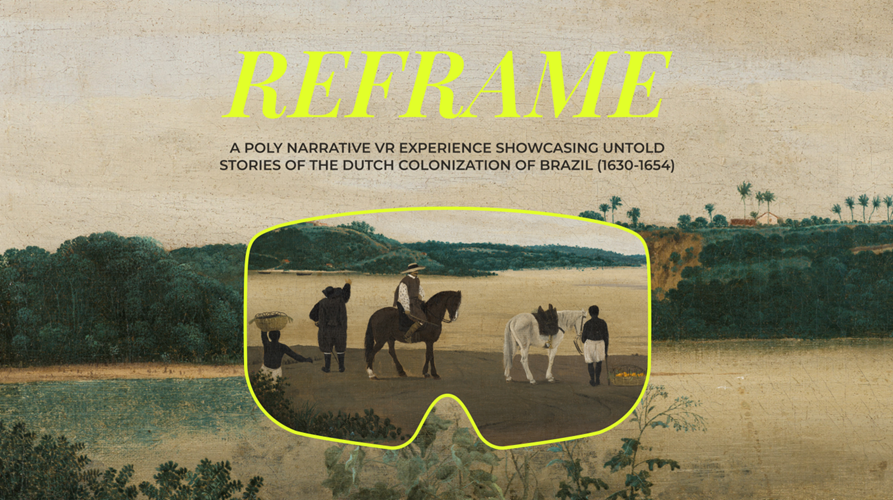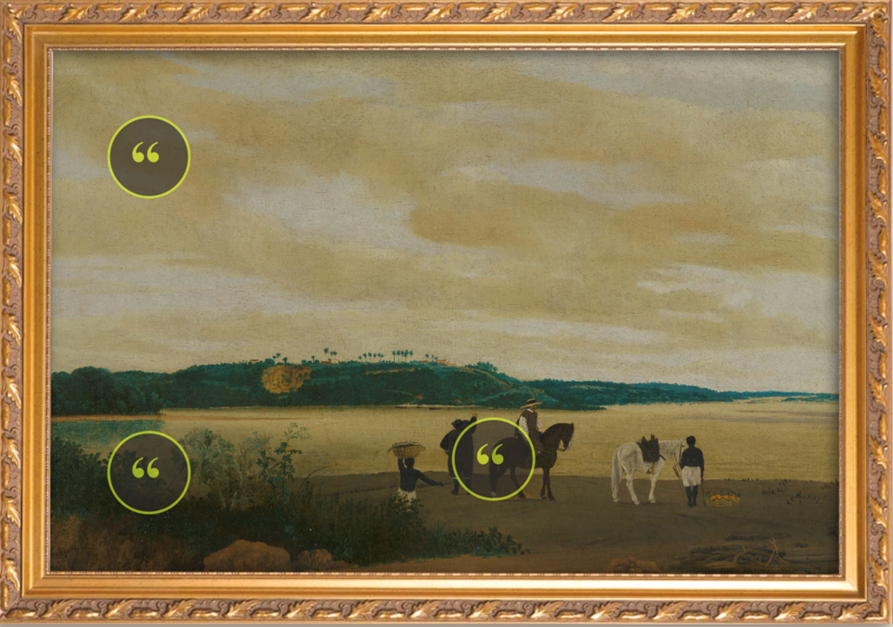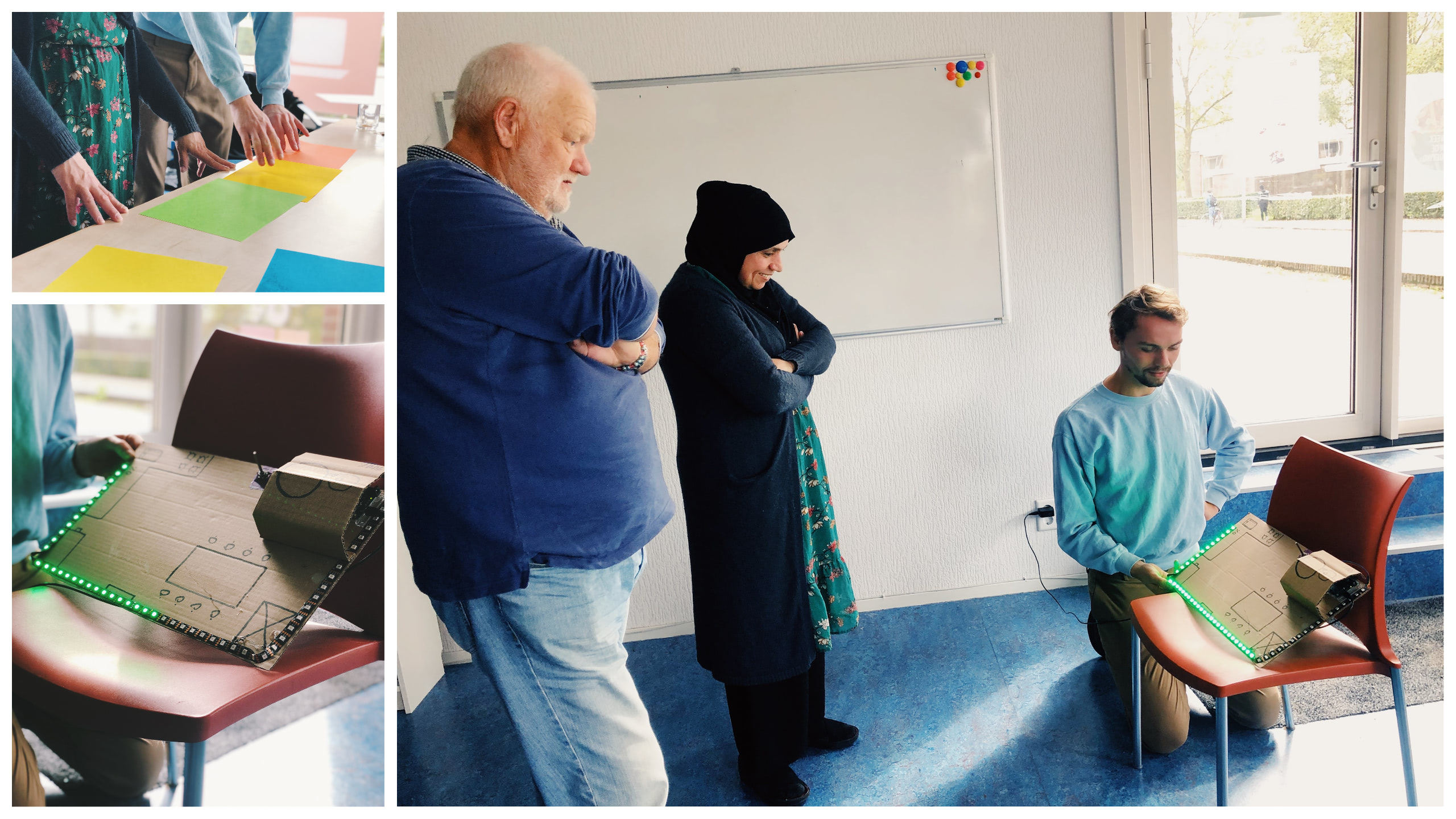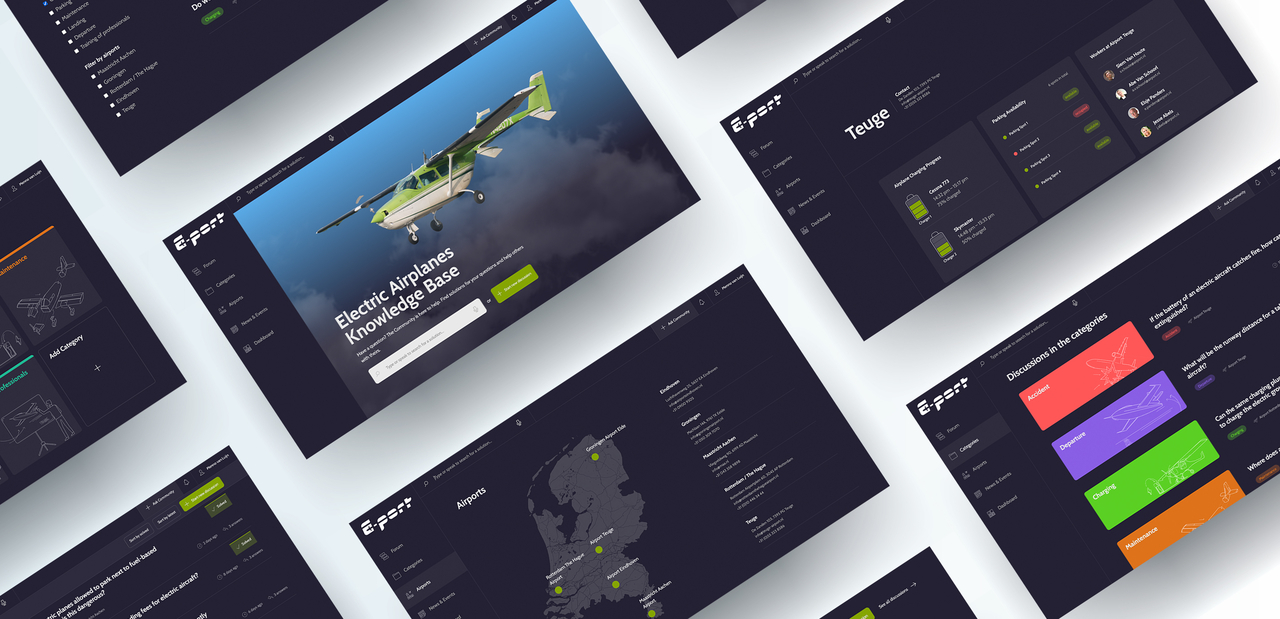
Reframe, a travelling art piece
A poly-narrative VR Experience Showcasing Untold Stories of the Dutch Colonization of Brazil (1630-1654)
-
Client:
Civic Interaction Design research group (AUAS)
-
Team:
Fanni Czegle, Dorsa Rafiee, Jelle Rijpkema, Arya Vaziri
-
Disciplines:
UX/UI, 3D, Virtual Reality
-
Schoolyear:
2022 - 2023
A lot of voices and stories have historically been hidden. They are not included in history books or in the stories museums tell. The stories they do tell, and how they tell them, are heavily influenced by the museum's values, biases, and blind spots. Museums are not transparent about this topic, they're not neutral institutions. Museums like Rijksmuseum don't do enough to show the negative side of the Dutch colonial past. They rarely present the perspective of the countries the Dutch invaded. Recent efforts might mention some aspects of Dutch colonization, but they keep silent about the horrific events that happened during that period.
Reframe is a VR experience that focuses on the Dutch occupation of Brazil (1630-1654). It's a poly-narrative that sheds light on those hidden voices and untold stories. But it does more; it makes us aware of our biases and blind spots by raising an interesting question: Might the same institutional biases we 'accuse' museums of still be present in some unforeseen way, neatly hidden in the systems, frameworks, and technology we use – and if so, can Reframe address that problem too?

Design Proposal: Reframe
In the VR experience, users will find themselves in front of View of Itamaracá Island, Brazil (1637) by Frans Post, where they will be able to interact with some elements of the painting. They hear a different story than the idyllic one created by the Dutch painter. A lot is not being told by him. Reframe fills this hiatus.
It confronts users with a different narrative. While interacting with the painting, users hear voice recordings of Brazilians with different backgrounds who describe what they see when they look at the painting. These personal stories are added to engage the user, unlock multiple perspectives, and to get across how colonization is still affecting many lives nowadays. It does so in a 'strange loop' kind of way as well.
Strange loop
In the same room, nine AI-generated paintings show how deeply rooted colonialism and racism still are in today's society and system. This new technology that's being developed is built on existing frameworks. It learns from the data we've fed the system. History forms its own datasets. To tell different stories, we need different data.
At the end of the experience, users will be asked to share their experiences related to colonialism and racism. By collecting these stories, new data is being gathered. This way, the experience will grow over time. With the current explosion of generative AI-design tools in mind, this might prove to be the most important part of the experience. For it's one thing to prompt AI to 'create a painting in the style of Frans Post', but another to unlock these hidden stories.
Student voice: Jelle Rijpkema
'This project has changed me in a way I didn't expect beforehand. You see, I'm not an activist, I'm a designer, I have my toolkit. By creating this VR experience, I can raise my voice and add value to the public debate. Not everybody has to stand with a banner protesting. Reframe really reflects where we stand now as a society; it raises questions on how we want to continue our relationship with the past. It has our signature. It would be nice to develop this further into a working product. But that takes time and funding.

